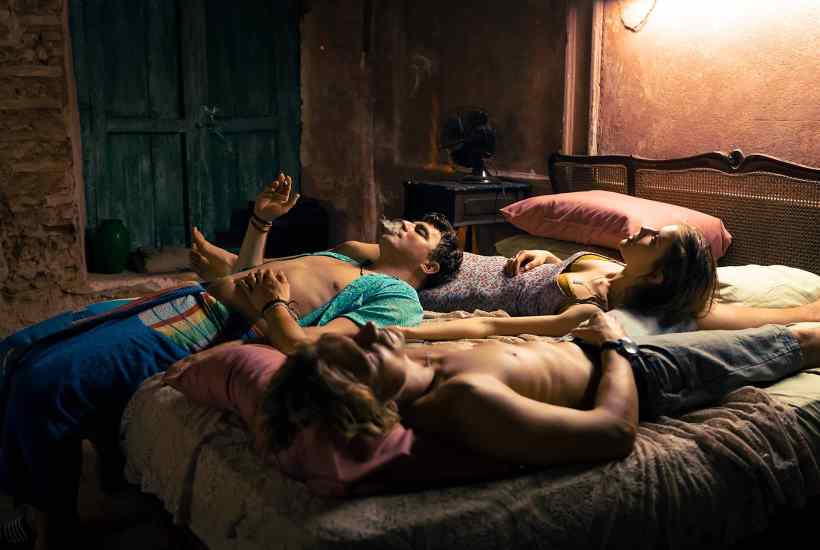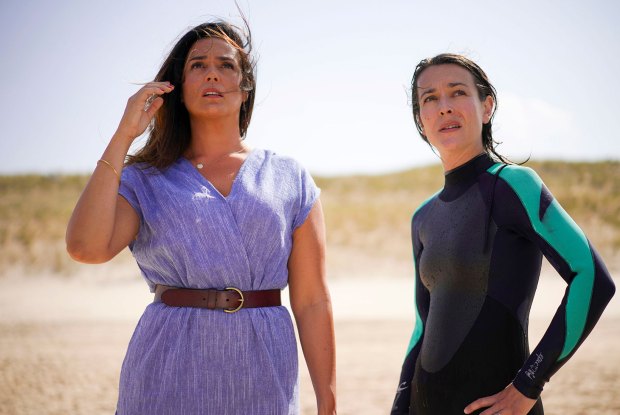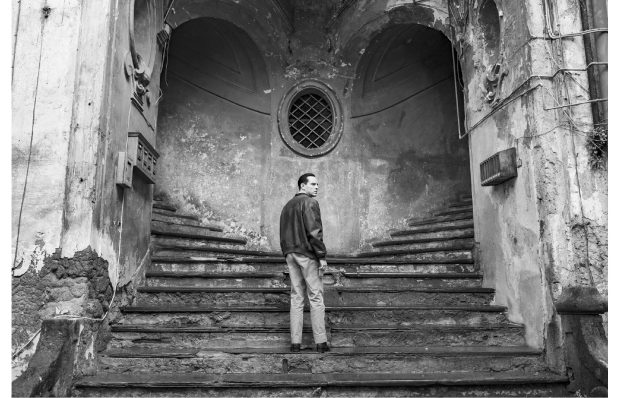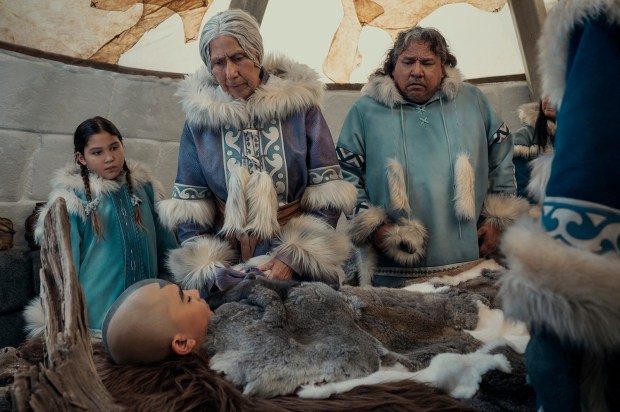The iron law of TV these days is that if you want to avoid series that are suffocatingly right-on the only way to go is foreign. Any TV emanating from the Anglosphere is guaranteed to be chock-full of intrusive anachronisms. Bridgerton,which reinvents Regency England as a melting pot of diversity, is an extreme example of this, but even previously immune series have been infected. Season five of The Last Kingdom now has a resident black monk, whose ethnicity no one notices, though such a phenomenon, you might think, would have been considered quite remarkable in 10th-century Wessex. Vikings, too, I gather, has allowed its shield wall to collapse and has been overrun by the forces of skinny soy latte.
But in Germany (and even more so the Spanish-, French- and Italian-speaking regions) they’re a good five or ten years behind the curve. In the land of the subtitle they still subscribe to the old-fashioned view that quality and verisimilitude should take precedence over finger-wagging lecturettes. Hence my optimism about Funeral for a Dog, a Sky Atlantic series originally from Germany, based on a bestselling novel by Thomas Pletzinger.
My main objection to it so far (I’ve only seen one episode) is the disjointed time sequences. These are yet another curse of the modern age. I’ve been gorging on C.S. Forester recently: prior to the second half of the 20th century, writers seem to have been perfectly capable of constructing a satisfying plot without having to confuse us with flashbacks, multiple viewpoints and other stylistic tricksiness.
I suppose contemporary critics will hail this as a sign of growing audience sophistication. Our social media-addled but meme-literate attention spans have blessed us with the gift of racing minds capable of flitting through and expertly deciphering complexity. My own view, though, is that it’s mainly a cheat. It places undue emphasis on twists and turns and unexpected reveals, which means that convoluted plots collapse under the weight of their implausibility, especially during the anti-climatic contrived pay-off. And it means that flash-in-the-pan gimmickry has largely replaced good, old-fashioned writerly craft.
Still, for the moment, I’m hooked. There are two timelines. The first is in the present (or near-present) and finds an obsessive journalist, Daniel Mandelkern, en route to try to grab an interview with a reclusive novelist who – very successful, clearly – lives on a remote estate on the shore of the Italian lakes.
There’s something dodgy about Mandelkern. We first meet him in the plane’s toilet, throwing up and nursing a mysteriously bruised, split lip as if someone has beaten him up. He may have a drink problem. And his morals are clearly suspect. When someone drops a wrap of cocaine, he hides it under his foot and, rather than returning it to its owner, slips it into his pocket for later use. Also, he is blessed with the luck of the devil. On the plane, he accidentally finds himself sitting opposite, and making conversation with, just about the only person in the world capable of providing him with an in to that otherwise inaccessible novelist.
Meanwhile, in flashback world, we are in late 1990s Colombia where three gap-year types – two German males and a Finnish girl – make friends while working for a Peace Corps-type project run by a charismatic priest. Felix (Daniel Sträßer) is the blond, handsome risk-taker, who drags his more sober, introspective buddy Mark (Friedrich Mücke) into all manner of drug-related scrapes. Tuuli (Alina Tomnikov), the pretty Finnish doctor, initially fancies Felix, while Mark looks on broodingly and wistfully. Clearly we are in some kind of doomed-love-triangle scenario.
Normally, for a drama of this size and evident expense (the location budgets must have been enormous) there would be an abundance of critical responses for me to filch and sift so as to get a clue as to where it goes next and whether it will repay the effort. It’s a measure of how immune mass-market audiences are to non-English material (even when most of the dialogue is actually in English) that the internet response thus far has been almost non-existent. I’m just keeping my fingers crossed that it doesn’t disappear too far up its own fundament in the manner of that Israeli series When Heroes Fly (also about friends coming to grief in South America), which dragged you along for ten episodes’ worth of life, none of which you’ll ever get back.
I can’t imagine it’s going to be more disappointing than The Last Kingdom to which I was addicted in the early seasons, especially with any scenes involving David Dawson giving his luminous portrayal of difficult, pious, maddening yet oddly sympathetic Alfred. Partly what has spoiled it for me is listening to Bernard Cornwell’s vastly richer and more subtle audiobooks, which make you realise how much detail (and interior character) you are missing. Partly it’s because it has been scripted by hacks who clearly don’t give a toss about 10th-century power politics or military tactics. For them, it’s just generic costume drama with imperilled yet strong women and hunky blokes, which could have been set anywhere. This is the way all screen entertainment is heading. We should cherish moments of rare, countercultural quality whenever we still can.
Got something to add? Join the discussion and comment below.
Get 10 issues for just $10
Subscribe to The Spectator Australia today for the next 10 magazine issues, plus full online access, for just $10.
You might disagree with half of it, but you’ll enjoy reading all of it. Try your first month for free, then just $2 a week for the remainder of your first year.















Comments
Don't miss out
Join the conversation with other Spectator Australia readers. Subscribe to leave a comment.
SUBSCRIBEAlready a subscriber? Log in